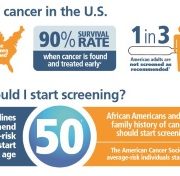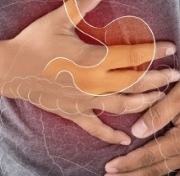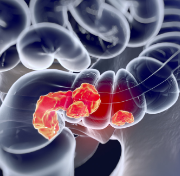Colonic Ischemia: What You Need to Know
Colonic ischemia is a condition where blood flow in the colon is reduced. It can cause damage to the affected area of the colon. Here’s everything you need to know about this condition.
Causes and Risk Factors
Colonic ischemia, as noted above, causes diminished blood flow in the colon. This can be caused by a number of things. Your risk increases if you have fatty buildups on an artery wall (atherosclerosis), extremely low blood pressure (often due to trauma, shock, surgery, or heart failure), or use cocaine or methamphetamine. Some disorders like lupus and sickle cell anemia can also be a cause of this condition.
Colonic ischemia is more common in adults over 60 and in women. If you have had abdominal surgery, scar tissue from the procedure can also reduce blood flow in some cases. Additionally, people with IBS are more likely to develop colonic ischemia.
Symptoms of Colonic Ischemia
Some of the most typical symptoms involved with this condition include abdominal pain or tenderness. This can be severe in some cases, and may also build gradually or occur suddenly. You can experience symptoms on the right or left side of your abdomen. Other symptoms also include nausea, vomiting, diarrhea, blood in your stool, and a feeling of urgency to defecate.
Diagnosis
This condition is difficult to diagnose because its symptoms are also associated with a number of other disorders. Doctors diagnose colonic ischemia with a combination of medical history, a physical exam, and some testing procedures. They often start by charting your symptoms and identifying any potential risk factors. Your doctor may also check your abdominal area to identify the location of any pain. They may choose to order a CT scan to help visualize your colon and identify the cause of the symptoms. They may also perform a sigmoidoscopy or colonoscopy to see detailed images of your colon and potentially take a tissue biopsy. All of these tests are ways they can get at the underlying cause of your symptoms.
Treating Colonic Ischemia
Doctors treat this condition by helping proper blood flow return to the colon. In milder cases, this may just involve an IV to help you rehydrate. Your doctor may also prescribe antibiotics to prevent infections, and may suggest you avoid medications that constrict your blood vessels. If there is a specific underlying disorder that has caused colonic ischemia (like an irregular heartbeat), your treatment will involve treating that disorder.
In some cases, you may also need surgery to heal. This is for severe cases where your colon has undergone significant damage. Depending on your situation, doctors may repair any holes in your colon, remove dead tissue, or remove a portion of your colon.
Our experienced team at GHP has years of experience treating patients with conditions including colonic ischemia. We can help establish the best plan of care for your situation. Contact any of our office locations to learn about the options we offer and schedule an appointment today.













